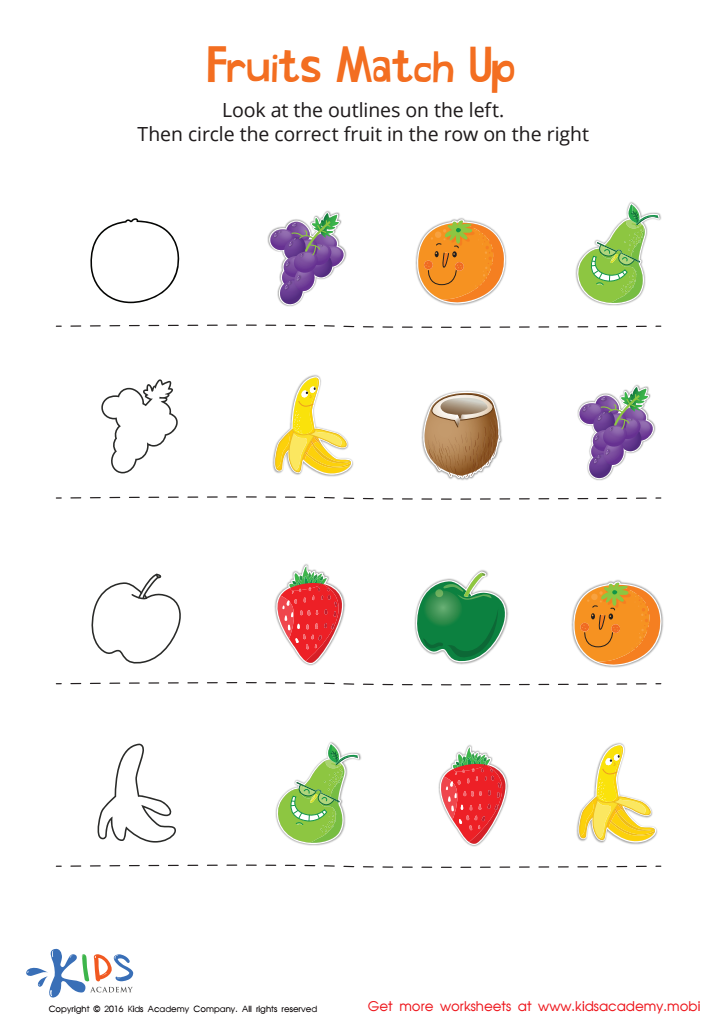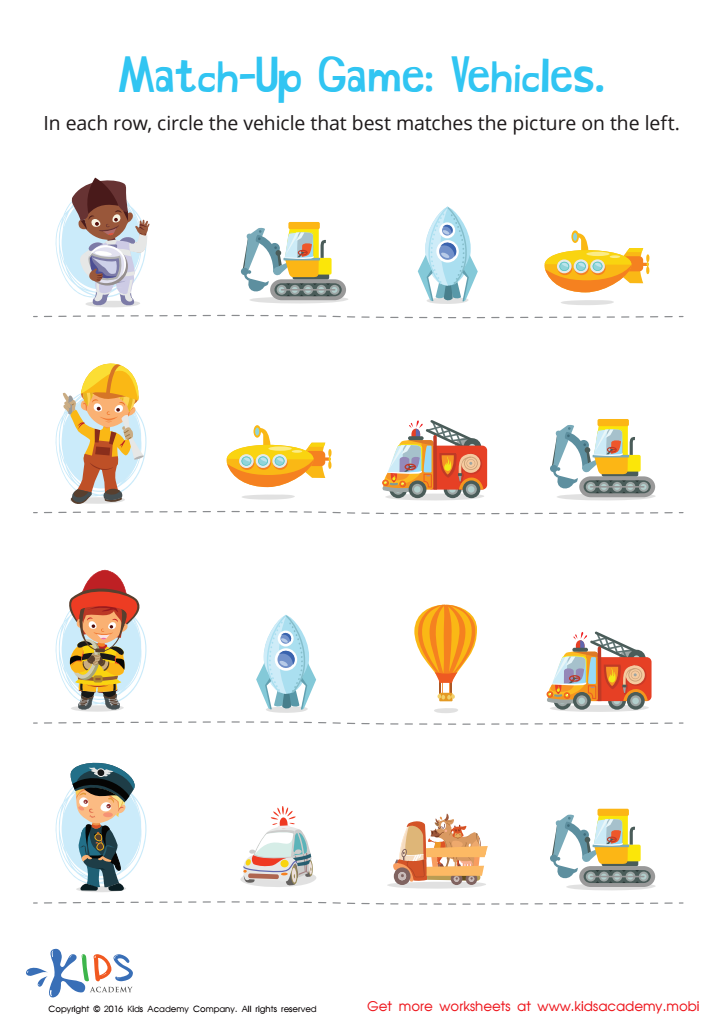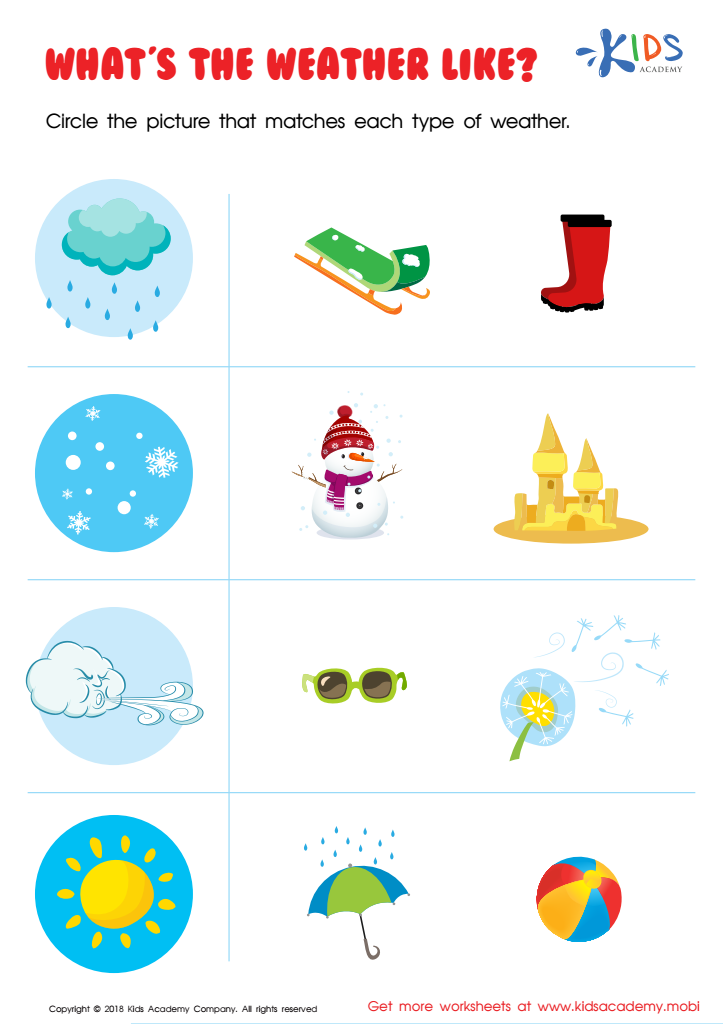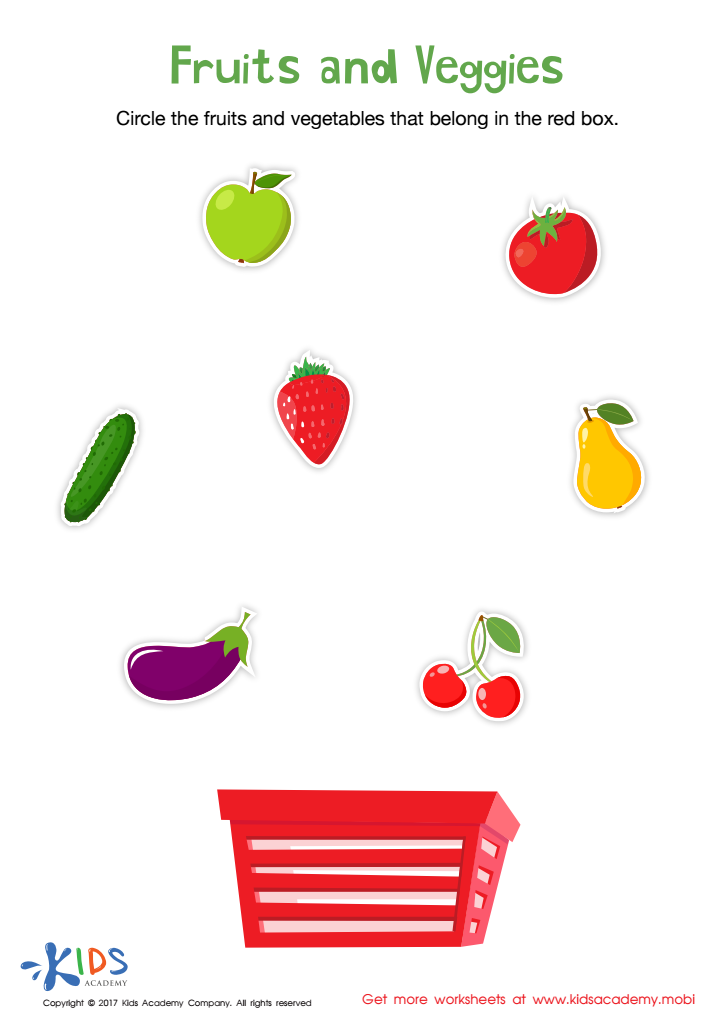Vocabulary Building Normal Matching Worksheets for Ages 4-8
5 filtered results
-
From - To
Enhance your child's vocabulary with our engaging Normal Matching Worksheets designed for ages 4-8! These interactive worksheets offer a fun way for young learners to expand their word knowledge while developing critical matching skills. Each worksheet features colorful images and simple words that encourage children to connect labels with corresponding pictures, making learning enjoyable and effective. Perfect for classroom use or at-home practice, our vocabulary-building activities cater to various learning styles. Empower your child’s speech and comprehension abilities as they explore language through play. Download now to help your child become a confident, articulate communicator!


Fruits Match Up Worksheet


Matching: Classifying Toys by Size Worksheet


Vehicles Worksheet


What's the Weather Like? Worksheet
Vocabulary Building Normal Matching is a critical aspect of language development for children aged 4-8, which parents and teachers should prioritize. During these formative years, children are rapidly acquiring language skills, and a robust vocabulary is essential for effective communication, reading comprehension, and overall academic success.
Engaging children in vocabulary-building activities helps them make connections between words and their meanings, enhancing cognitive skills and promoting creativity. Implementing Normal Matching—aligning words with compatible images or concepts—further solidifies their understanding through visual and contextual learning. This interactive approach caters to various learning styles, making language acquisition more engaging and impactful.
Moreover, a rich vocabulary supports social interactions and emotional expression, crucial for building relationships with peers and adults. Children with a strong vocabulary foundation are more likely to excel in school, as they can articulate their thoughts, participate in discussions, and tackle complex subjects confidently.
Investing time in vocabulary-building activities not only fosters academic achievement but also nurtures lifelong learning and curiosity. Therefore, it is essential for parents and teachers to actively engage in vocabulary development, ensuring children aged 4-8 establish a firm linguistic foundation that will benefit them throughout their educational journey and beyond.
 Assign to My Students
Assign to My Students
























